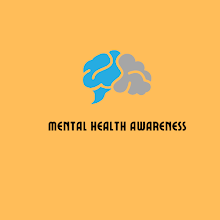6 Ways to Live An Authentic Life | Real-Life Examples of Authenticity

Especially with social media, where it's simple to (quite literally) filter out the aspects of ourselves and our lives, we're not so keen on, we frequently hear the term "being authentic" thrown about. Others could strive to "people please" and unintentionally change aspects of themselves in an effort to appease others. However, not living truthfully over time might have an adverse effect on your mental and physical health. Authenticity was crucial to the existentialist philosopher Jean-Paul Sartre's understanding of freedom and leading a purposeful life. We must accept the truth of our freedom and take ownership of the lives we lead to truly live. In psychology, authenticity requires us to know and own who we are rather than just striving to be ourselves. However, there are difficulties in finding a balance between authenticity and well-being over the course of our lives and in the various roles we play.
Do you ever feel as though a mask is covering your face? Perhaps you believe that in order to fit in, you must behave a specific way around your employer or say a certain manner to your coworkers. You're performing a part to fit in or to impress people rather than being authentic. Most of us have experienced situations similar to this. We speak to people in ways that we believe they want to hear rather than acting in ways that are consistent with our true nature. In other words, we don't live honestly. This style of living and working is exhausting, depressing, and constricting. It might prevent us from realizing our full potential. Being genuine in one's life and work is the opposite of this. We can live free from the opinions and expectations of others and steer our own lives when we give ourselves the freedom to be who we are.
What is meant to be authentic?
Authenticity contrasts with the "act like others expect you to" or "fake it until you make it" manner of blending in. Living honestly is acting, behaving, and feeling in ways that are consistent with your ideals and inner states. It also means being your actual self in relationships. When you prioritize being who you really are rather than the version that other people anticipate, authenticity happens. When you make the decision to embark on a journey of self-awareness, and intention, and let go of the idea that other people have to concur with or approve of your decisions, you are on the road to living honestly.
There may be as many definitions of authenticity as there are psychologists, philosophers, and academics, it seems. However, a typical definition of authenticity is to live your life in accordance with your own ideals and objectives as opposed to those of other people. Simply said, authenticity means that you act in accordance with your own personality, values, and spirit despite external pressure to do differently. You take ownership of your errors and are sincere both with yourself and others. Your actions, ideals, and values are in harmony. You come across as sincere as a result, and you're prepared to bear the costs of standing by what you think is right.
6 Ways to Live An Authentic Life:
It takes work to live more truly, and the process requires some patience. However, you can start taking action in your daily life to move toward this condition of being.

- Accept silence: In our daily lives, a variety of viewpoints are presented to us from various angles. Therefore, it can be simple to be carried away by the throng and forget what makes you, you.
- Know yourself: "Check in with yourself when you're chatting to someone you care about. Are you ignoring what's going on in your life? Or are you actually being yourself and communicating? Consider what you could say in place of what you're doing if you're putting on a "front" or not expressing how you genuinely feel. Consider the reasons behind your partial honesty as well.
- Seek therapy: Being genuine is a challenging journey. It may be challenging to distinguish the true you if you have been altering your actions or emotions in an effort to fit in with others. Therapy may be beneficial if you have trouble being or recognizing your genuine self.
- Become more vulnerable: We sometimes hide our true selves because we don't want to appear weak. The writer explains that it may be difficult or frightening for certain people to be vulnerable. That vulnerability, she continues, "may be fruitful. It might be worth taking the risk. Try letting down your defenses with them initially if you feel safer around them than you do with other people. Positive feedback could give you the courage to be more real more frequently.
- Be purposeful: If you put up a "front" or pretend to enjoy yourself when participating in certain activities or with certain friends, think about why you do it and whether you may make any changes to be more authentic.
- Make Inquiries: When you actually connect with someone, being authentic is simpler. Spend as much time as possible getting to know them, so they can better understand you. Writer advises, "Ask questions in relationships." "Try to connect meaningfully with those around you by going beyond the surface."
Why Authenticity is Helpful For Mental Health?
Authenticity is more valuable & necessary for mental health because of
- Lessen depression's symptoms.
- Enhance happiness.
- Reduce stress.
- Raise self-esteem.
- Raise work satisfaction.
- Lowered likelihood of social anxiety disorder and decreased fear of death improved connections.
Real-Life Examples of Authenticity:
- Smiling and remembering to say "thank you" to everyone.
- Assisting without being asked and keeping your word.
- Recognising your impact on others while at work.
- Being on time and prompt shows others that you value their time.
- Discussing with everyone's input in mind.
.webp)
Authenticity And Parenting:
Conditional love produces what Carl Rogers (1963) refers to as "conditions of worth": guidelines we acquire as children that inform us that receiving love is dependent on our actions and performance.
In the end, these circumstances give rise to the inner critics and detractors we subsequently experience as adults. As parents, it is our responsibility to love our kids unconditionally, without regard to how well they behave and perform academically, or on athletic teams. Both withholding affection or only expressing it when our child performs well is detrimental. Instead of wanting our kids to grow up to please us, we should want them to be true to who they are.
Final Verdict:
Being authentic means staying true to who you are in your interactions with others and in your daily activities, rather than putting up a "front" to gain favor with others. However, levels of authenticity might differ depending on the connection; for instance, you could be more inclined to be yourself around your best friend than your employer.
Living genuinely may have a variety of positive effects on mental health, from increased happiness and self-worth to diminished despair and anxiety. It's crucial to keep in mind that becoming more honest is a process rather than a quick fix, according to Writer. There is no reason why you cannot begin and succeed in your path with sufficient patience and self-awareness.

%20(1).png)

%20(1).jpg)
1 Comments
Nice doing
ReplyDelete